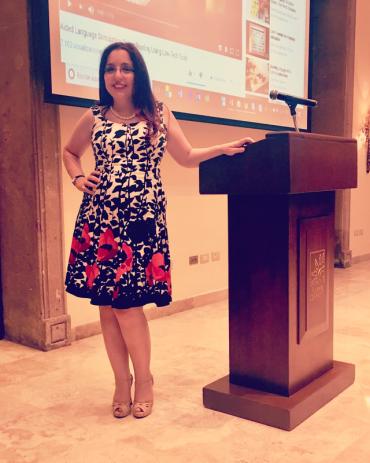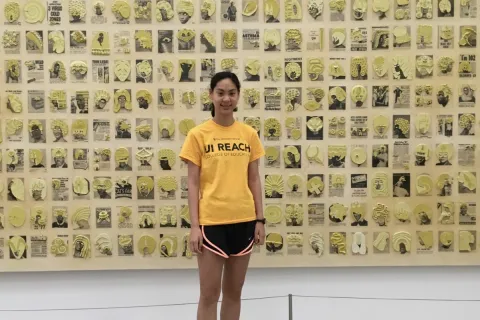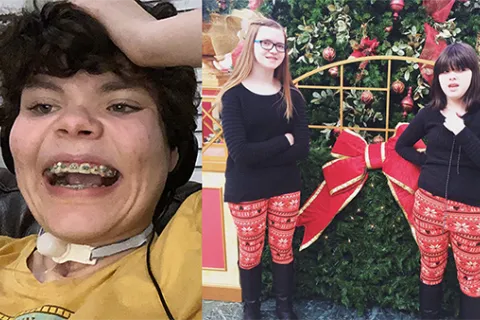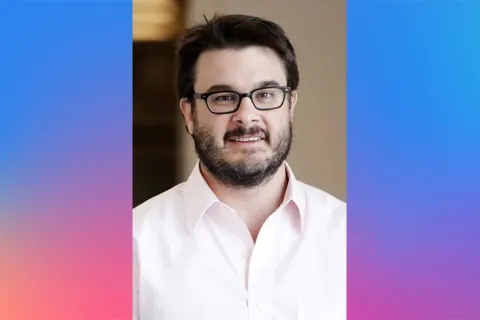Career Transitions: How Amy Gravino Turned Her Passion Into Her Profession
By Amy GravinoAmy Gravino is a prominent autism sexuality advocate, relationship coach at Rutgers University (NJ), media personality and international speaker. But she didn't start out this way. Early in her career she moved across country to Seattle and took her first office job. It would also be her last. She found it through a temp agency that did not specialize in autism or finding employment for people with ASD. There was no on-site support in place; no one for her to check in with or whom she could ask for help if needed. After a series of miscommunications, she decided to disclose her diagnosis to her coworkers. Shortly after, her supervisors decided they no longer needed a temp. But it wasn’t entirely a negative experience. She says it helped her find her purpose and lead her to where she is today.
Below Amy shares how she landed her current job and a message to other autistic adults: to have a successful career, the most important person you need to know is yourself.
In 2020, I started a new job as a relationship coach in the Rutgers Center for Adult Autism Services (RCAAS). The timing couldn’t have been stranger, as I was there for all of two days before Spring Break, and then a global pandemic happened. Work finally resumed in person in the Fall of last year, and it some ways, it truly feels like I didn’t start at the RCAAS until then.
As an autistic adult, I’ve had more than my share of disappointing and frustrating experiences with employment. Starting a new job in the midst of a pandemic and waiting a year and a half to even meet most of my co-workers was the last thing I could have expected. The prolonged isolation coupled with the trepidation I felt after my previous jobs left me with feelings of such uncertainty, and questions not unlike the ones I used to ask in my elementary school years:
Will I fit in? Will the others like me? Am I going to be able to do what everyone expects me to do?
Returning to the Rutgers campus in September of 2021 felt like the first day of school all over again. The one established relationship I had was with Dr. Christopher Manente, the Executive Director of the RCAAS. We’d met five years earlier at an event outlining the vision for the RCAAS and then again at a panel I spoke on that was organized by Dr. Manente in 2019, forming a connection that would prove more fruitful than I could have imagined.
As a relationship coach, I work one-on-one with the participants in the SCALE (Supporting Community Access through Leisure and Employment) program and the CSP (College Support Program) to help them navigate issues related to friendships, relationships, and sexuality. And while it may seem ideal on paper to have an autistic adult working in an environment that is all about supporting autistic adults, I have still faced challenges adjusting to and understanding the workplace.
Being the only autistic employee at the RCAAS, my role has extended beyond educating the students to my co-workers, to helping them to reimagine their preconceived biases and ideas about autism. It is an opportunity that I only wish I would have had in previous jobs, where my colleagues’ knowledge and understanding of autism and neurodiversity was extremely limited.
But where the desire to have that understanding was nearly absent from my past workplaces, at Rutgers, my colleagues and supervisors are more than eager to listen, to collaborate, and to learn, and it has made all the difference.
Knowing that I am valued matters. Knowing that my perspective and my background is an integral part of me having this job matters. It has motivated me to do the best I can and given me the confidence to fully be myself at work.
Since I started at the RCAAS two years ago, so much has changed, both at Rutgers and in the world at large. My role has changed, and I am taking on ever-growing responsibilities, including applying for and receiving a $25,000 grant—my first as a Principal Investigator—in collaboration with Dr. Vanessa Bal, Director of the PSC (Psychological Services Clinic), to develop a sex education curriculum for students on the autism spectrum.
So many autistic adults are still struggling, still fighting to find the job and the workplace environment that is right for them. It took me many years to realize that I need to work in a field and in a position that means something to me, rather than just doing something for a paycheck. When it comes to getting a job, we hear so often that it’s who you know, not what you know that counts.
But what I have learned is that the most important person you need to know is yourself—who you are, what you’re passionate about, and what you need to be successful. Be that person—the person you are, who no one else can be, and the employers who are paying attention, and who understand the value of having different kinds of minds, will stand up and take notice.









